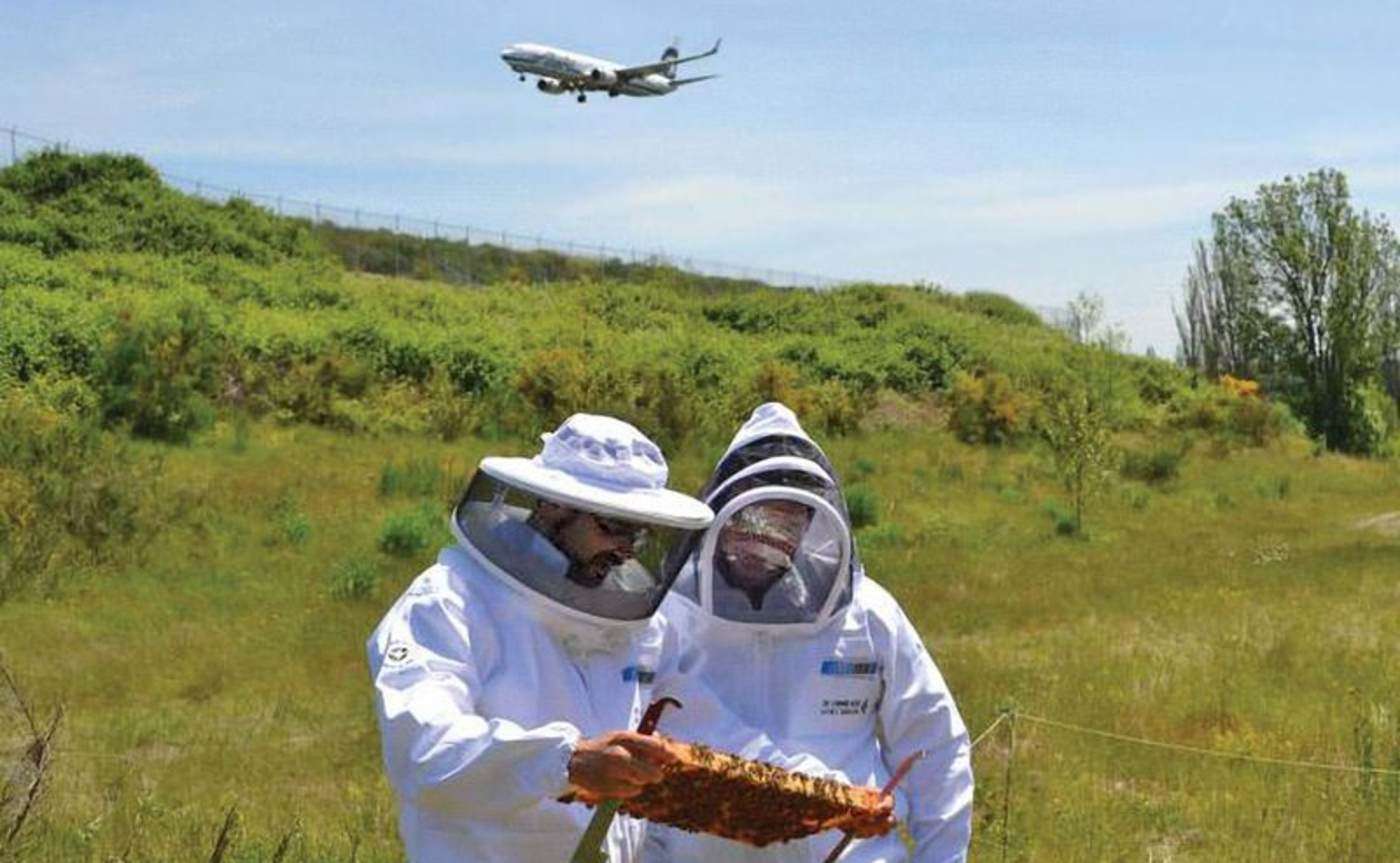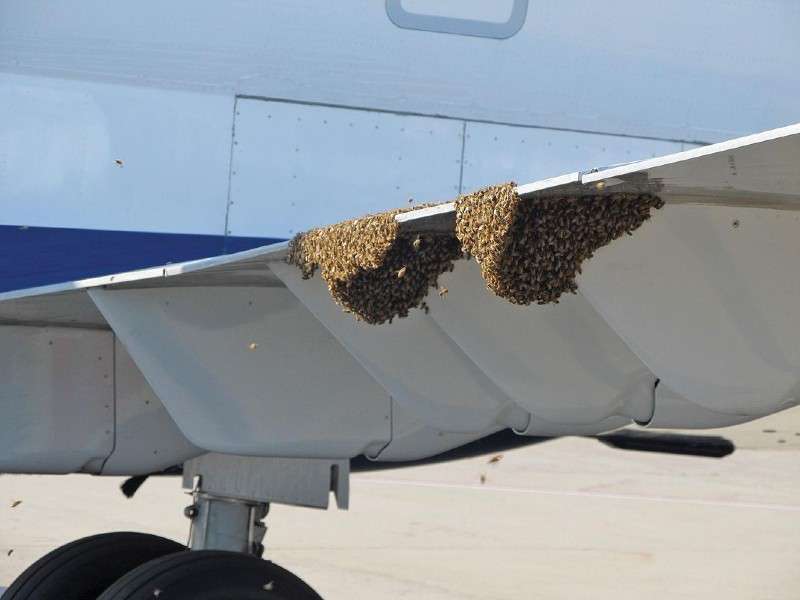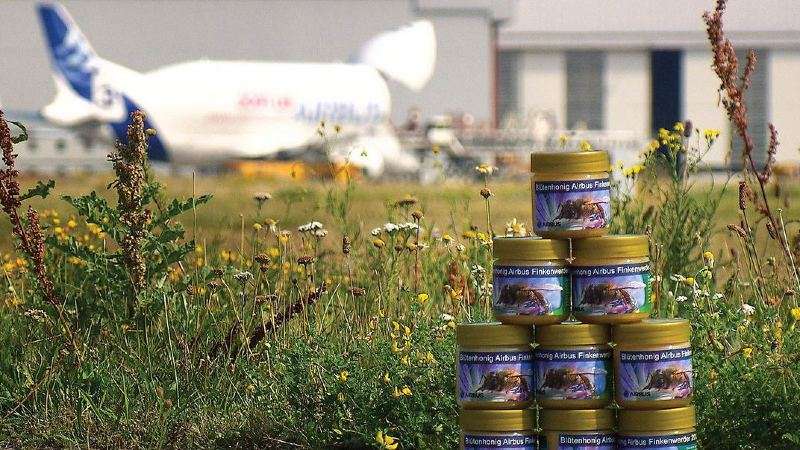Dog Leads Confused Owner To Missing Elderly Woman Knee-Deep In Dark Pond Water
Abby Leathers noticed her rescue dog, Bruce, acting strangely. The moment she let him outside, Bruce shot toward a nearby pond, and Abby, luckily, followed him.

What's black and yellow, makes a buzzing sound, produces honey—and lives at an airport? Don't let that last part fool you, these bees have found a great new home.
Bees are being welcomed onto the natural landscape surrounding Pittsburgh International Airport to help rebuild colony numbers in the state. This is after the airport's wildlife administrator, Ben Shertzer, found several colonies fixed onto the underside of a plane's wings.
As the world's foremost pollinators, bees govern the fate of literally billions of agriculture dollars, and the existence of many of our fruit and nut commodities.
Beekeepers move their hives across the country pollinating meadows and orchards, and it's estimated that 35% of agricultural goods in the US rely to some degree on bees.
Shertzer had to hire Steve Repasky, a master beekeeper, to remove the hives from the Delta aircraft's wings, but it also sparked in him an interest in the buzzing insects—an interest which led him to learn about the plight of the bees around the world and how valuable they are to our society.
The two men came up with a plan to utilize the woods and unmowed fields around the exterior of the airport to host an apiary, but had to wait several years for an administrator sympathetic to the apids' plight to get started.
Now, spread across 8,000 acres and 110 colonies, 4 million bees buzz around the airport's property, and they're helping the staff monitor air pollution created on the premises in a curious way.
Swarming behavior, when in spring a hive separates and the bees go off a mile or more looking for a new home, looked as if it was going to be a bit of a problem, since at one point Repasky was removing 15 hives a year from runway vehicles and planes.

Yet "swarm traps" placed on the edges of the tarmac has reduced this number down to three.
Air & Space Magazine reports that many airports in the country and around the world are actually beginning to keep bees—including Seattle-Tacoma, Austin-Bergstrom, and Minneapolis-St. Paul.
It's a curious trend that could help reverse decades of decline in bee populations which are beginning to rise again thanks to reductions in pesticide use and efforts of people like Shertzer.
For example, in Germany the honey collected (and given away for free at certain airports) is examined for traces of heavy metals and hydrocarbons to see if air pollution regulations are being met.

As it turns out, the honey is equivalent to honey produced in areas without heavy industry—an exciting find indeed.
BUZZ the Good News Over to Your Pals on Social Media…
Be the first to comment